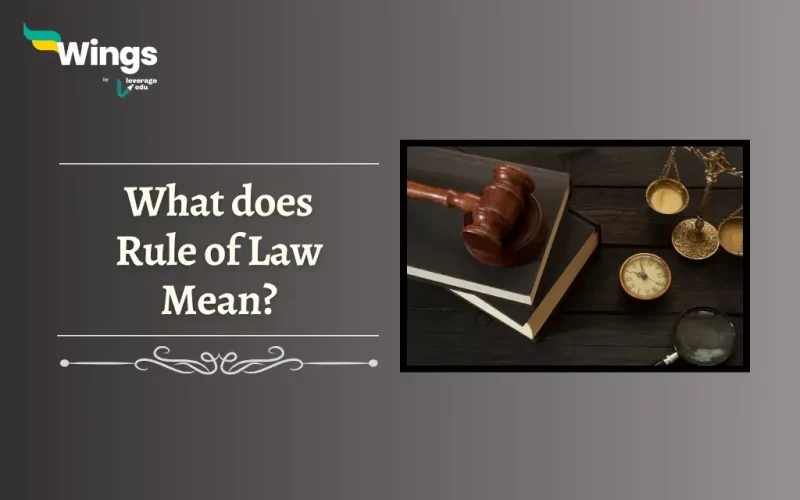The Rule of Law means that everyone, from citizens to government officials is subject to the same set of Laws. It is a fundamental principle that guarantees a just and stable society. Furthermore, these laws are clear, publicly known, and fairly applied. Moreover, the Rule of Law is more than just having a bunch of laws in the Constitution. It is about having a system where the Law is supreme and everyone obeys it. Thus, this creates predictability, fairness, and accountability.
What are the Features?
In addition, the features of the Rule of Law are as follows:
- Everyone is treated the same under the law, regardless of their background or status.
- The government and its officials are just as accountable to the law as anyone else.
- Laws are enforced and disputes are settled through a fair and impartial legal system.
- Moreover, laws should be written in a way that is understandable and accessible to the public.
Also Read: Important Articles in Indian Constitution
Rule of Law Taken from Which Country?
The Indian Constitution has borrowed the Rule of Law from the Constitution of the United Kingdom. Additionally, Article 14 in Part III of the Indian Constitution reinforces the idea that every citizen is subject to the same legal standards. Moreover, it is also a part of the Basic Structure Doctrine.
Also Read: Sources of the Indian Constitution
Who gave the Concept of Rule of Law?
A.V. Dicey, a British legal scholar in the 19th century, gave the concept of the Rule of Law. He proposed three core principles for the system:
- Supremacy of Law
- Equality Before the Law
- Predominance of the Legal Spirit
Also Read: What is Judicial Review in India?
What is Rule of Law with Example?
Let us take an example where two people get into a car accident. In a society with a strong Rule of Law, the police would investigate the accident based on established traffic laws, not on the social status or wealth of the people involved. Additionally, the evidence would be presented in a fair and impartial court, and a judge would give the verdict based on the law, not on personal bias. Thus, this guarantees that justice is served regardless of who is implicated.
Related Blogs
| Article 21: Right to Life and Right to Personal Liberty | Features of Democracy in India |
| What is Universal Adult Franchise? | What are Fundamental Rights? |
I hope this blog answers your query on What does Rule of Law Mean. Moreover, you may even read more blogs and empower yourself with knowledge regarding Civics and Polity!
 One app for all your study abroad needs
One app for all your study abroad needs













